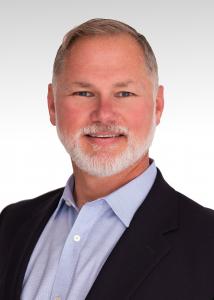IntellectAbility President, Craig Escudé MD FAAFP., on Identifying and Reducing IDD Health Risks
CEOCFO interviews IntellectAbility President, Dr. Craig Escudé., on their Intellectual and Developmental Disabilities Screening Tools, Training and Education
CLEARWATER, FLORIDA, UNITED STATES, January 10, 2023 /EINPresswire.com/ -- CEOCFO Magazine, an independent business and investor publication that highlights important technologies and companies, today announced an interview with Craig Escudé MD FAAFP., President of Clearwater, FL-based IntellectAbility, providing Training, Education and Screening Tools for people with Intellectual and Developmental Disabilities.
To read the full interview visit:
https://www.ceocfointerviews.com/intellectability23.html
IntellectAbility Products & Services:
Health Risk Screening Tool –
https://replacingrisk.com/health-risk-screening-tool/
Person Centered Services –
https://replacingrisk.com/person-centered-services
Curriculum in IDD Healthcare –
https://replacingrisk.com/curriculum-in-idd-healthcare-elearn/
Dr. Craig Escudé during the interview with CEOCFO’s Senior Editor Lynn Fosse, addressing the focus for IntellectAbility said, “Our company focuses on reducing health risks often missed in people with intellectual and developmental disabilities. The idea behind that statement is that our products aid in identifying health risks that people may not recognize and reducing those risks. We help supporters address those risks allowing the person to have better health and quality of life. We replace health risk with health and wellness.”
Asked if there are common health risks Dr. Craig Escudé responded, “There are some very particular risks that people are unaware of. Aspiration pneumonia is much more prevalent in people with disabilities for a few reasons. One is that sometimes people have swallowing issues that allow material to get into the lungs instead of going down into the stomach where it should be.” Dr. Craig Escudé continued, “Such conditions often go unrecognized because many providers and people who work with people with disabilities, including nurses and physicians, receive little training in recognizing and identifying these issues in people with IDD. In addition, people with IDD often use alternative means of communication rather than words, such as “adverse” behaviors, to communicate pain or other signs of illness. These signs may go unrecognized or are attributed to the person’s disability rather than a potentially treatable health condition. This phenomenon is called “diagnostic overshadowing.””
As for what IntellectAbility has developed, Dr. Craig Escudé shared, “We have several tools and training courses that we have developed. The primary tool of IntellectAbility is called the Health Risk Screening Tool. It is a web-based tool that helps to identify many of these health issues that often go unrecognized. Once it identifies areas of increased health risk, it provides action steps to supporters to help them mitigate those risks. For instance, it might identify a person is at increased risk for aspiration pneumonia, constipation, or gastroesophageal reflux disease. Then it supplies supporters with specific steps that they can take to help lower those risks.”
Discussing their courses, Dr. Craig Escudé told Lynn, “In addition, we have also developed several online training courses that teach people who work with people with disabilities about many of these conditions that I described, such as the Fatal Five. We have courses that teach people about the increased risk of choking and how to reduce those risks. We also have a course specifically developed for physicians and other clinicians, like nurses, nurse practitioners, and physician assistants, that teaches the fundamentals of healthcare for people with intellectual and developmental disabilities. That course is called the Curriculum in IDD Healthcare, and it is currently being utilized by clinicians in practice, as well as by nursing schools, nurse practitioner schools, and medical schools to teach clinicians about this area of healthcare.”
Asked how their Health Risk Screening Tool works, Dr. Craig Escudé replied, “The Health Risk Screening Tool (HRST) asses risk in 22 different areas. Examples of some areas assessed include eating, ambulation, and transferring risk, and behavioral areas such as aggressive and self-abusive behavior. Risks associated with bowel issues, seizures, and certain medications are also included. The tool asks very simple “yes or no” questions related to these 22 different areas of risk. The tool is designed to be administered by anyone who knows the person well, not necessarily a nurse or other clinician.”
Explaining how clinicians can now use telemedicine, Dr. Craig Escudé offered, “One of the more recent advances in healthcare is the ability to receive care through telemedicine services. As I mentioned earlier, many clinicians have not received training about how to meet the healthcare needs of people with IDD. IntellectAbility has partnered with StationMD to create Health Risk Informed Telemedicine (HRIT). HRIT consists of three components; training clinicians about IDD Healthcare, providing telemedicine access for patients and making the HRST risk profile data available to physicians in real-time to help inform their clinical decision-making. This innovative partnership has been developed to help improve health equity for people with IDD.”
Describing their person-centered training, Dr. Craig Escudé told CEOCFO, "Person-centered training means that the person is at the center of their life decisions. The field of providing supports and services for people with intellectual and developmental disabilities has always been very heavily weighted on what people think is best FOR that person. They might say, “I think it is best for this person to have X, Y, or Z,” or, “I think they should be able to do this, but they should not be able to do that.” What happens is that people without disabilities are making decisions for people with disabilities about the way they think their lives should go. Person-centeredness is about bringing that control, or that decision-making ability, back to the person themselves so that they can have positive control and influence over their lives to the greatest extent possible while still ensuring safety and health.”
"When people learn who we are and the impact our products can have on the lives of so many, it’s much easier to become part of the conversation and a part of the solution,” said Dr. Craig Escudé explain how they get foot in the door and gain attention at conferences.
For more information:
Lynn Fosse
Senior Editor
CEOCFO Magazine
352-431-3400
lf@ceocfomail.com
Lynn Fosse, Senior Editor
CEOCFO Magazine
+17174807070 ext.
lf@ceocfomail.com
Legal Disclaimer:
EIN Presswire provides this news content "as is" without warranty of any kind. We do not accept any responsibility or liability for the accuracy, content, images, videos, licenses, completeness, legality, or reliability of the information contained in this article. If you have any complaints or copyright issues related to this article, kindly contact the author above.



